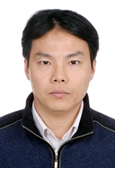Topic: Multi-scale calculation and design of electrochemical energy storage materials
Lecturer: Prof. Shi Siqi
Time: 10:00 am, Thursday, December 3, 2020
Place: Room 343, Teaching building No.7, West District, Xixi Campus
Invited by: Researcher Hong Zijian
Abstract
This report will focus on some of the work carried out by myself and my partners, introduce the main progress in this field in recent years, and look forward to the role of cross-scale computing in the development of new electrochemical energy storage materials and systems in the future.
Brief introduction of the Lecturer

Shi Siqi, Ph.D, winner of National Excellent Youth Fund, distinguished professor / tracking program of Shanghai University (Oriental scholar). July 2004, Ph.D. in condensed matter physics, Institute of physics, Chinese Academy of Sciences. He has been a postdoctoral or visiting scholar in the Institute of industrial technology in Japan, University of Nebraska Lincoln, Brown University and General Motors R&D Center. He has been working in the school of materials science and engineering of Shanghai University since June 2013. He is also the director of solid state ion Credit Committee of China Silicate Society, editorial board member of Computational Materials Science, and young editorial board member of China Science: Technological Science.
He is mainly engaged in Computational Materials Science of energy storage and conversion materials based on electrochemistry. First principles calculation and design of electrolyte and electrode materials for lithium-ion batteries and their interface ion transport, electron / ion transport coordination control were firstly carried out in China. It has undertaken 7 National Natural Science Foundation projects, 3 provincial and ministerial level projects, and 2 national key R & D program material genome projects. He has published more than 120 papers in Chem Rev, J Am Chem Soc, Nature commun, Adv Mater, Phys Rev B and other journals. Being cited more than 5600 times, H factor 40, ESI highly cited 4 papers, 5 software copyrights, and invited more than 30 reports to international academic conferences. He won the first prize of “most influential Thesis Award” of Chinese Physical Society in 2019.



